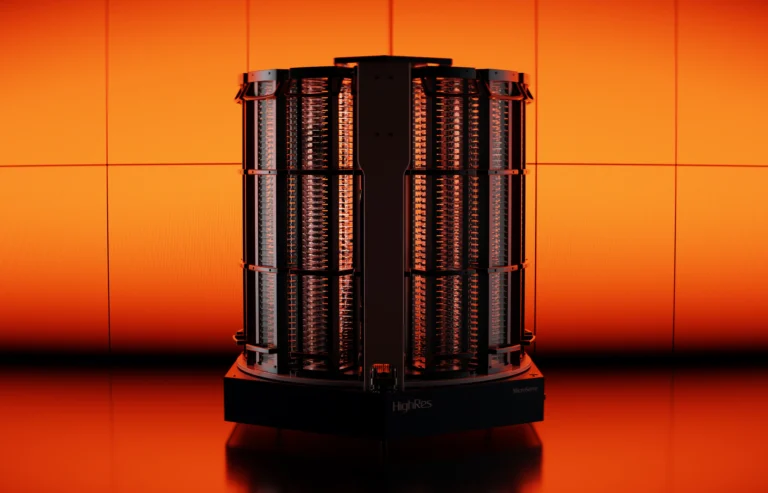
IQM and NVIDIA Partner to Advance Scalable Quantum Error Correction with NVQLink Integration
IQM Quantum Computers, a global leader in superconducting quantum computers, has announced a groundbreaking collaboration with NVIDIA to integrate NVIDIA’s NVQLink technology into its quantum systems. This partnership represents a significant milestone toward scaling quantum error correction (QEC) — one of the most critical challenges in realizing practical quantum computing applications.
The integration of NVQLink into IQM’s quantum architecture will enable seamless interaction between quantum processors and classical accelerated computing platforms, helping unlock the potential of hybrid quantum–classical systems. These systems are essential for executing complex workloads in areas such as simulation, optimization, and machine learning.
The Role of NVQLink in Hybrid Quantum-Classical Computing
At the heart of this collaboration lies NVQLink, an open, interoperable platform designed to bridge the gap between quantum hardware and high-performance classical compute resources. NVQLink is deeply integrated with NVIDIA CUDA-Q, NVIDIA’s unified hybrid quantum computing platform, which allows developers to orchestrate quantum and classical resources through a single programming interface.
NVQLink provides low-latency, high-throughput connectivity between quantum processors and GPU-accelerated systems. This fast data exchange is vital for real-time orchestration of computational tasks — particularly those that demand rapid feedback between quantum and classical systems. Such responsiveness is a prerequisite for effective quantum error correction, which relies on continuous measurement, decoding, and correction of quantum states.
Addressing the Challenge of Quantum Errors
Although modern quantum computers are beginning to demonstrate their power across domains like optimization, chemistry simulations, and AI model training, they remain limited by error rates at the level of physical qubits. These errors make it difficult to maintain quantum coherence long enough to perform complex calculations at scale.
IQM’s innovation roadmap centers on solving this problem through quantum error correction — a process that encodes logical qubits across multiple physical qubits to improve reliability. However, implementing QEC requires longer runtimes and greater classical computing power, making it both a hardware and software challenge.
To meet these demands, IQM has developed IQM Constellation, a unique quantum processor architecture designed for scalable error correction. This architecture efficiently integrates the physical and logical layers of quantum computation, allowing more stable and reliable quantum operations. With NVQLink, IQM can now leverage NVIDIA’s accelerated computing capabilities to perform real-time decoding and control operations necessary for fault-tolerant quantum systems.
A Unified Compute Architecture for Quantum Advancement
This partnership unites IQM’s advanced quantum processor technology, Zurich Instruments’ high-precision control systems, and NVIDIA’s accelerated computing platform into a single, layered architecture. The result is a powerful hybrid computing environment capable of managing workloads across diverse timescales — from hundreds of nanoseconds to multiple seconds.
Dr. Jan Goetz, Co-CEO and Co-founder of IQM Quantum Computers, emphasized the importance of this integration, stating:
“Integrating NVQLink into our systems is a significant step towards building logical qubits and utility-scale quantum computers. By combining our IQM Constellation with NVIDIA accelerated computing and Zurich Instruments’ control electronics, we can tackle one of the toughest challenges on the road to fault-tolerant quantum computing: real-time decoding and control at scale.”
This collaboration sets the stage for scalable quantum architectures that can operate seamlessly with advanced classical computing systems — a necessary step in achieving quantum utility, where quantum systems outperform classical ones in practical applications.
Expanding Opportunities for Hybrid Quantum–Classical Applications
Beyond error correction, the integration of NVQLink opens new frontiers for hybrid quantum–classical computing. By enabling smooth data flow between logical qubits and GPU-powered compute resources, NVQLink allows developers to design algorithms that rely on real-time classical feedback — crucial for applications such as quantum machine learning, cryptography, and materials discovery.
Flavio Heer, CTO at Zurich Instruments, highlighted the broader implications of the collaboration:
“Quantum is reaching an inflection point, and hybrid systems will be the foundation for solving real-world problems. Collaborating closely with IQM and NVIDIA to showcase seamless end-to-end integration of classical and quantum computing, spanning both hardware and software, represents a significant advancement for hybrid systems and will enable powerful demonstrations very soon.”
These advancements are expected to pave the way for scalable, interoperable, and open hybrid computing ecosystems, where classical and quantum resources work in concert to address complex challenges that traditional systems cannot efficiently solve alone.
Driving the Next Phase of Quantum Acceleration
NVIDIA’s leadership in accelerated computing brings a vital component to this collaboration. As Tim Costa, General Manager for Quantum at NVIDIA“Building scalable quantum-accelerated supercomputing demands tighter integration between quantum processors and classical accelerated computing to tackle challenges like quantum error correction. QPU builders like IQM and quantum system vendors like Zurich Instruments are accelerating breakthroughs in quantum computing by using NVIDIA NVQLink as the open unified interface connecting quantum hardware to accelerated computing platforms.”
This shared vision of open, standards-based integration marks a shift in the quantum computing industry — from isolated research prototypes toward robust, scalable systems ready for enterprise and scientific workloads.
Conclusion: Paving the Way to Fault-Tolerant Quantum Computing
The IQM–NVIDIA collaboration represents a pivotal leap toward scalable and fault-tolerant quantum computing. By combining IQM’s innovative Constellation architecture, Zurich Instruments’ precision control, and NVIDIA’s NVQLink and CUDA-Q platform, the partnership establishes a new benchmark for hybrid quantum-classical integration.
With NVQLink as the connective tissue between quantum and classical domains, this initiative will accelerate the path toward real-world quantum advantage, enabling breakthroughs in scientific research, artificial intelligence, and industrial innovation.
Source link :https://www.businesswire.com/





